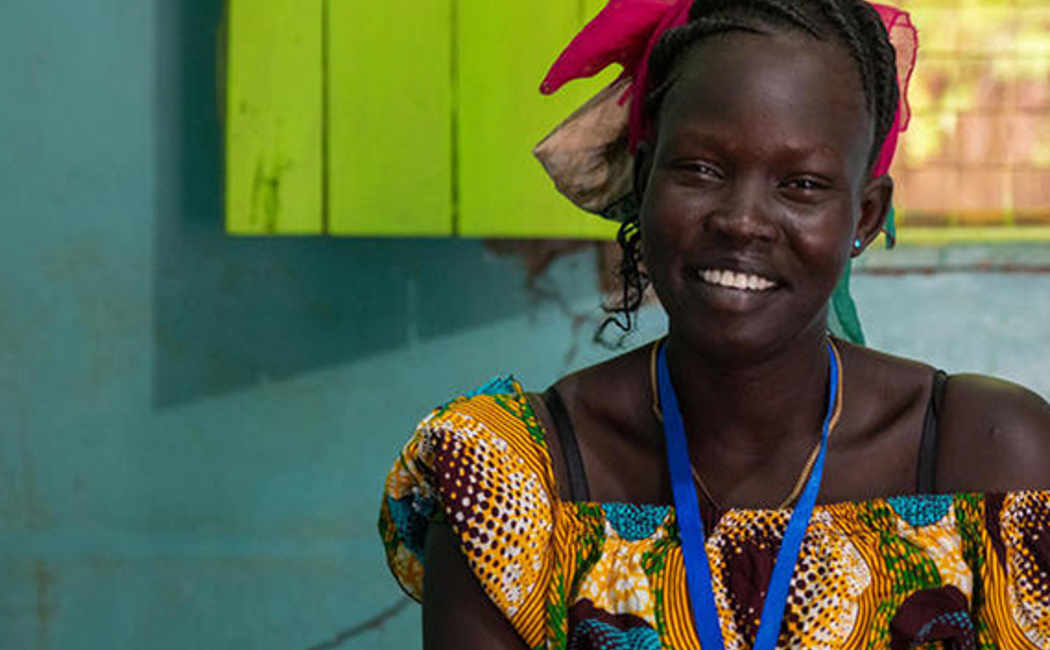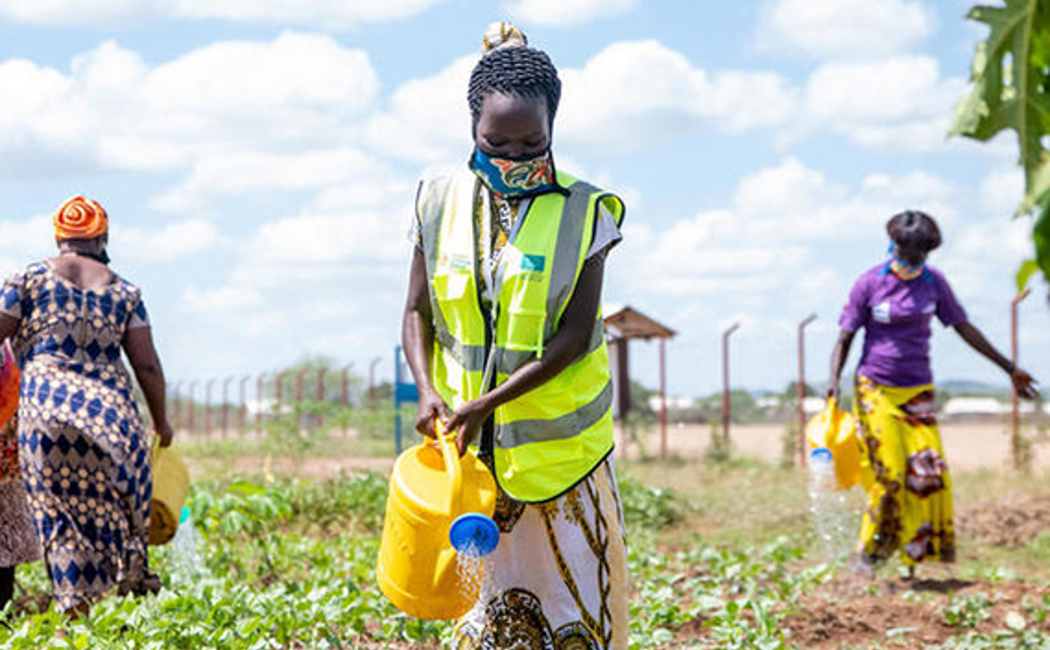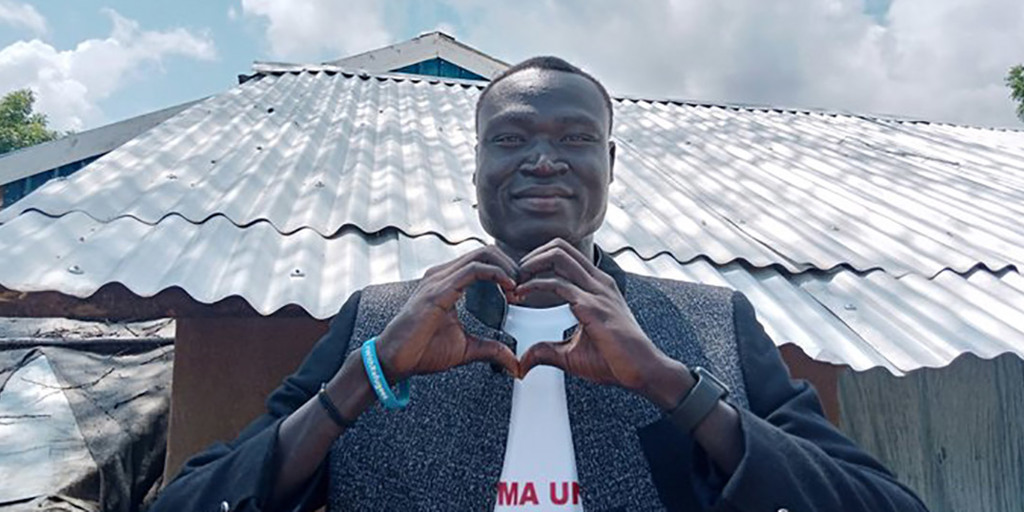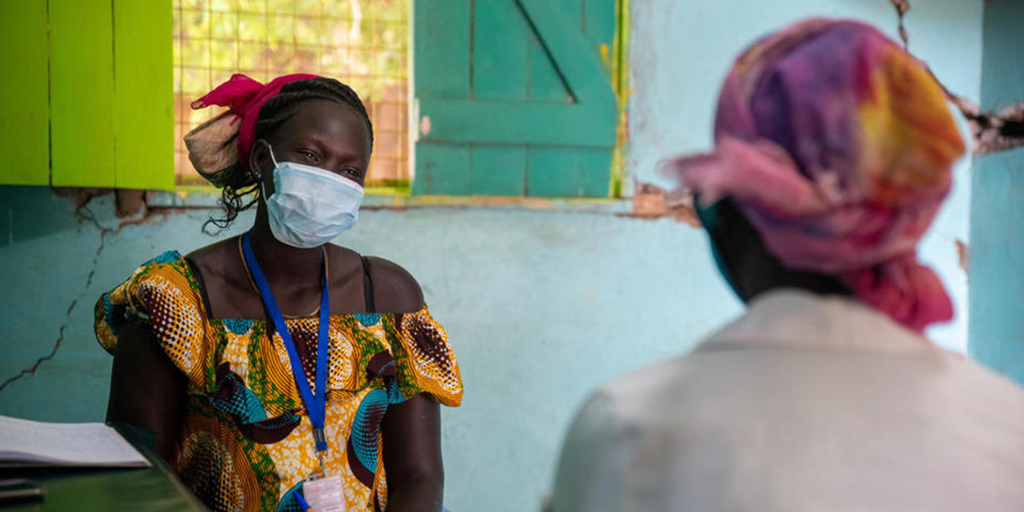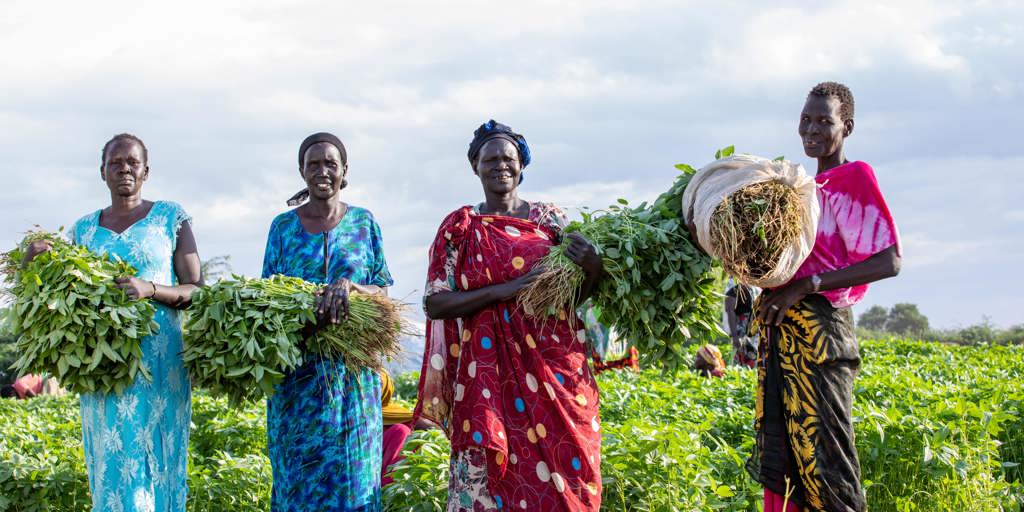In 2020, the coronavirus pandemic exacerbated gender-based violence, taking a huge toll on women and girls around the world. As countries went into lockdown and borders closed, reports of violence against women and girls, particularly domestic violence, began to rise.
Sarah Nyajuok is a 24-year-old South Sudanese refugee living at Kakuma camp in Kenya. She decided to train as a community worker after witnessing her mother’s experience of gender-based violence.
As the threat of COVID-19 reached refugee camps, the need for safe spaces and services for women victims of domestic violence became even more urgent.
“The problem of domestic violence got much worse during lockdown,” Sarah says. “Clients tell us that their situation is more dangerous, that they are not safe because the perpetrators are always there.”
In Kakuma, refugee community workers have been trained by UNHCR’s partner organisation the Danish Refugee Council to identify and refer cases of gender-based violence – which can include sexual, physical, mental and economic harm.
Gender-based violence disproportionately affects women and girls and can involve threats of violence, coercion, manipulation, child marriage, female genital mutilation and so-called 'honour crimes'.
“The problem of domestic violence got much worse during lockdown.”
“We are also receiving cases of forced marriages,” Sarah says. “Schools have been closed and parents don’t want their daughters to stay at home so many girls are being forced back to their homeland for marriages. I think there should be more help for gender-based violence survivors, like women’s centres.”
16 Days of Activism against Gender-Based Violence is an international campaign that runs from 25 November, the International Day for the Elimination of Violence against Women, to 10 December, Human Rights Day. It provides an opportunity to shine a light on the need for funding, support and essential services.
“Pandemic-induced poverty is having a particular impact on women and girls,” says Filippo Grandi, UN High Commissioner for Refugees. “Reports of gender-based violence, including domestic violence, forced marriage and exploitation, are increasing.”
“I think there should be more help for gender-based violence survivors.”
















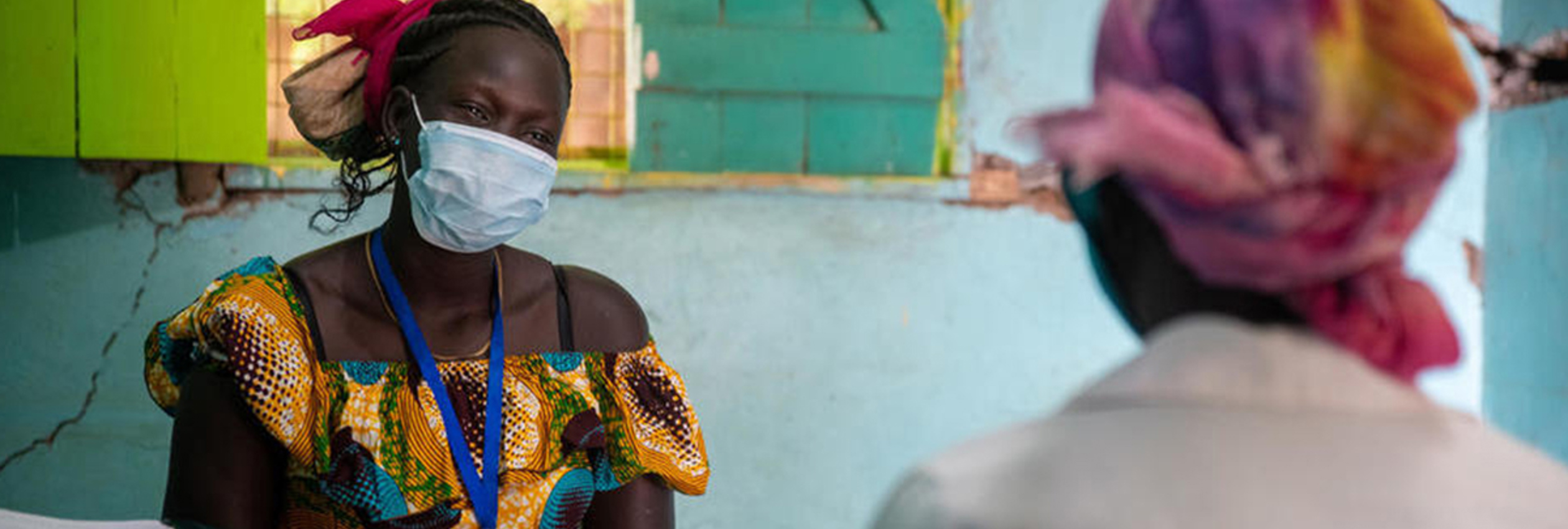
 Kenya
Kenya
